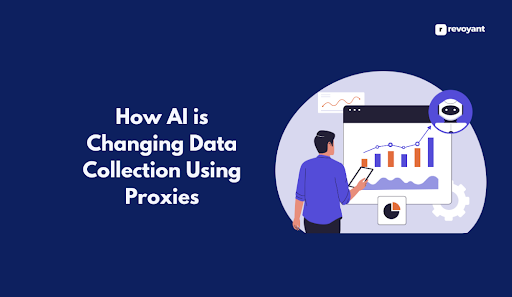Selecting the right AI customer support software can be challenging, especially with the rapid advancements in AI technology and the growing number of options available. Each solution promises to improve efficiency, streamline customer interactions, and enhance overall satisfaction. So, how do you determine which solution best fits your business needs?
In this guide, we’ll cover everything you need to know about AI customer support software, from key features and user types to the benefits, challenges, alternatives, costs, implementation strategies, and trends shaping 2024.
What is AI Customer Support Software?
AI customer support software uses artificial intelligence to manage customer interactions, automate repetitive tasks, and assist customer service representatives. These systems often come with features such as chatbots, virtual assistants, ticket management, and advanced analytics. They enable businesses to provide quicker and more personalized customer support at scale while reducing operational costs.
Key Features of AI Customer Support Software
Understanding the core features of AI customer support software will help you identify the essential elements you need:
| Feature | Description |
|---|---|
| Chatbots & Virtual Assistants | Automated bots that handle customer inquiries 24/7, providing quick answers to common questions and freeing up human agents for more complex tasks. |
| Natural Language Processing (NLP) | NLP allows AI to understand, interpret, and respond to customer queries in human-like language, improving customer interactions by making them more natural and conversational. |
| Omnichannel Integration | AI customer support systems often integrate with multiple platforms such as email, live chat, social media, and voice channels, ensuring seamless communication across touchpoints. |
| Sentiment Analysis | This feature helps AI detect the emotional tone behind a customer’s message and adjust its responses accordingly, enhancing customer satisfaction and reducing potential conflicts. |
| Self-Service Knowledge Base | AI-powered platforms often offer automated knowledge bases where customers can find answers to common questions without needing to contact customer support directly. |
| Automation & Workflow Management | These tools automate ticket routing, escalation, and management, making it easier for customer service teams to handle large volumes of requests efficiently. |
| Data Analytics & Reporting | Comprehensive analytics and reports give insights into customer behavior, common issues, and agent performance, allowing businesses to continually optimize their customer support processes. |
Who Uses AI Customer Support Software?
AI customer support software is used by a wide variety of industries. Here are a few examples:
E-commerce & Retail
E-commerce businesses use AI customer support tools to handle pre-sales inquiries, order tracking, and returns, improving overall customer satisfaction and reducing cart abandonment.
Financial Services
Banks and fintech companies use AI to manage customer inquiries about account balances, transactions, and loan applications, providing faster, more secure responses.
Healthcare
Healthcare providers employ AI for managing patient inquiries, scheduling appointments, and answering frequently asked questions about services or treatments.
Telecommunications
Telecom companies use AI-powered systems to troubleshoot issues related to internet connectivity, billing, and technical support.
SaaS (Software as a Service)
SaaS providers use AI to manage user onboarding, customer support requests, and issue resolution in real-time, improving customer retention.
Challenges of AI Customer Support Software
While AI customer support software can revolutionize your customer service strategy, there are certain challenges that businesses may face:
Limited Understanding of Complex Queries
AI chatbots may struggle with complex or nuanced queries, resulting in incomplete or inaccurate responses, which could frustrate customers.
- Impact: Customers with complex issues might need to escalate to human agents, slowing down the process.
- Solution: Use hybrid models where AI handles routine queries and human agents step in for more complex issues.
Language and Cultural Sensitivity
Though many AI systems support multiple languages, the subtleties of cultural context and idiomatic expressions can be difficult to manage.
- Impact: Miscommunication could lead to customer dissatisfaction.
- Solution: Opt for AI systems with multilingual capabilities and culturally adaptive NLP.
Initial Setup & Training
Implementing AI support software often requires significant initial setup and customization to suit the unique needs of a business.
- Impact: Time and resource constraints can slow down deployment.
- Solution: Choose solutions with strong onboarding support and customizable configurations to reduce setup time.
Dependence on Data
AI’s effectiveness is heavily reliant on access to large datasets for training. Without sufficient data, its performance may be suboptimal.
- Impact: Poor data quality can result in AI models producing less accurate responses.
- Solution: Use AI systems that allow continual learning and retraining on fresh data.
Benefits of AI Customer Support Software
24/7 Customer Support
AI systems can provide around-the-clock assistance, helping customers anytime they need it, without relying on human agents being available.
Impact: Enhances customer satisfaction by offering continuous support.
Increased Efficiency & Productivity
AI automates repetitive tasks, like answering FAQs or managing simple requests, which frees up human agents to focus on more complex problems.
Impact: Improves the overall productivity of your support team.
Scalability
As businesses grow, AI systems can handle increasing volumes of customer inquiries without needing to hire additional staff.
Impact: Allows for easy scaling of customer support operations.
Cost Savings
By reducing the reliance on human agents, businesses save on operational costs while still providing excellent customer support.
Impact: Lowers operational costs for businesses.
Alternatives to AI Customer Support Software
If AI customer support software doesn’t fit your needs right now, here are some alternatives:
| Alternative | Description | Benefits |
|---|---|---|
| Human-Only Support | Traditional customer service teams where human agents handle all inquiries. | Provides a more personal touch and better handling of complex issues. |
| FAQ Pages | A static page where customers can find answers to common questions. | Easy to set up, low-cost, and requires no ongoing management. |
| Outsourced Support | Hiring third-party providers to manage customer service. | Quickly scale operations without internal hiring. |
Cost of AI Customer Support Software
The cost of AI customer support software varies depending on the vendor, features, and scale of implementation. Here’s what to expect:
- Freemium Plans: Many platforms offer free versions with limited features for small businesses or startups.
- Subscription Plans: Monthly fees can range from $10 to $50 per user, depending on the capabilities of the platform.
- Enterprise Solutions: For large businesses, pricing is usually custom, based on specific needs, volume of usage, and advanced feature sets.
- Pay-Per-Use Models: Some platforms charge based on API calls or the number of support tickets handled.
How to Buy AI Customer Support Software
1. Identify Your Needs: Start by determining what your customer service challenges are. Do you need help managing large volumes of inquiries, or are you looking for a tool to handle technical support?
2. Compare Features: Make a list of must-have features like chatbots, omnichannel support, and sentiment analysis. Prioritize platforms that align with your business goals.
3. Read Reviews: Look for user reviews and case studies to see how well the software performs in real-world settings.
4. Test with a Free Trial: Most AI customer support software offers a free trial. Use this to evaluate ease of use, integration capabilities, and overall effectiveness.
5. Consider Long-Term Scalability: Choose software that can grow with your business, handling increasing support volume without the need for substantial changes.
Implementation Strategies
Start Small with a Pilot Program
Begin by implementing AI customer support software for a single channel, such as live chat. Monitor its performance before rolling it out across other channels.
Train Your Team
Ensure that your customer service team is familiar with the software’s features. Provide training on how to monitor and manage AI-driven responses.
Integrate with Existing Tools
Ensure the AI software integrates with your CRM, email systems, and social media platforms for a seamless workflow.
Monitor Performance
Track performance metrics, such as response times, resolution rates, and customer satisfaction, to evaluate the software’s effectiveness.
Latest Trends in AI Customer Support Software (2024)
| Trend | Description |
|---|---|
| Personalized Customer Interactions | AI software uses advanced algorithms to responses and recommendations to each user, based on past interactions, preferences, and behavior, creating more meaningful customer experiences. |
| Emotion AI for Enhanced Empathy | Emotion AI detects customer emotions through text, voice, and facial cues, allowing support to respond empathetically and improve customer satisfaction. |
| Voice and Multilingual AI Support | AI supports voice interactions and multiple languages, allowing seamless communication across global markets and enhancing accessibility. |
| AI-Driven Self-Service | Enhanced AI self-service portals and knowledge bases use natural language understanding to direct customers to precise solutions, reducing support tickets. |
| Proactive Support with Predictive AI | Predictive AI anticipates customer issues by analyzing data patterns and proactively offers support measures like tutorials or reminders. |
| Integration with IoT and Smart Devices | AI support extends to IoT, allowing troubleshooting and support directly from smart devices like home assistants and wearables, ensuring a responsive customer experience. |
Conclusion
AI customer support tools that fit your unique business needs will not only streamline customer interactions, but also contribute to long-term customer satisfaction and brand loyalty. Remember, flexibility, ease of use, and constant updates are key to maintaining the effectiveness of your AI support in a rapidly evolving digital landscape. By choosing the right solution, you can empower your support team, enhance the customer experience, and future-proof your customer service strategy.




